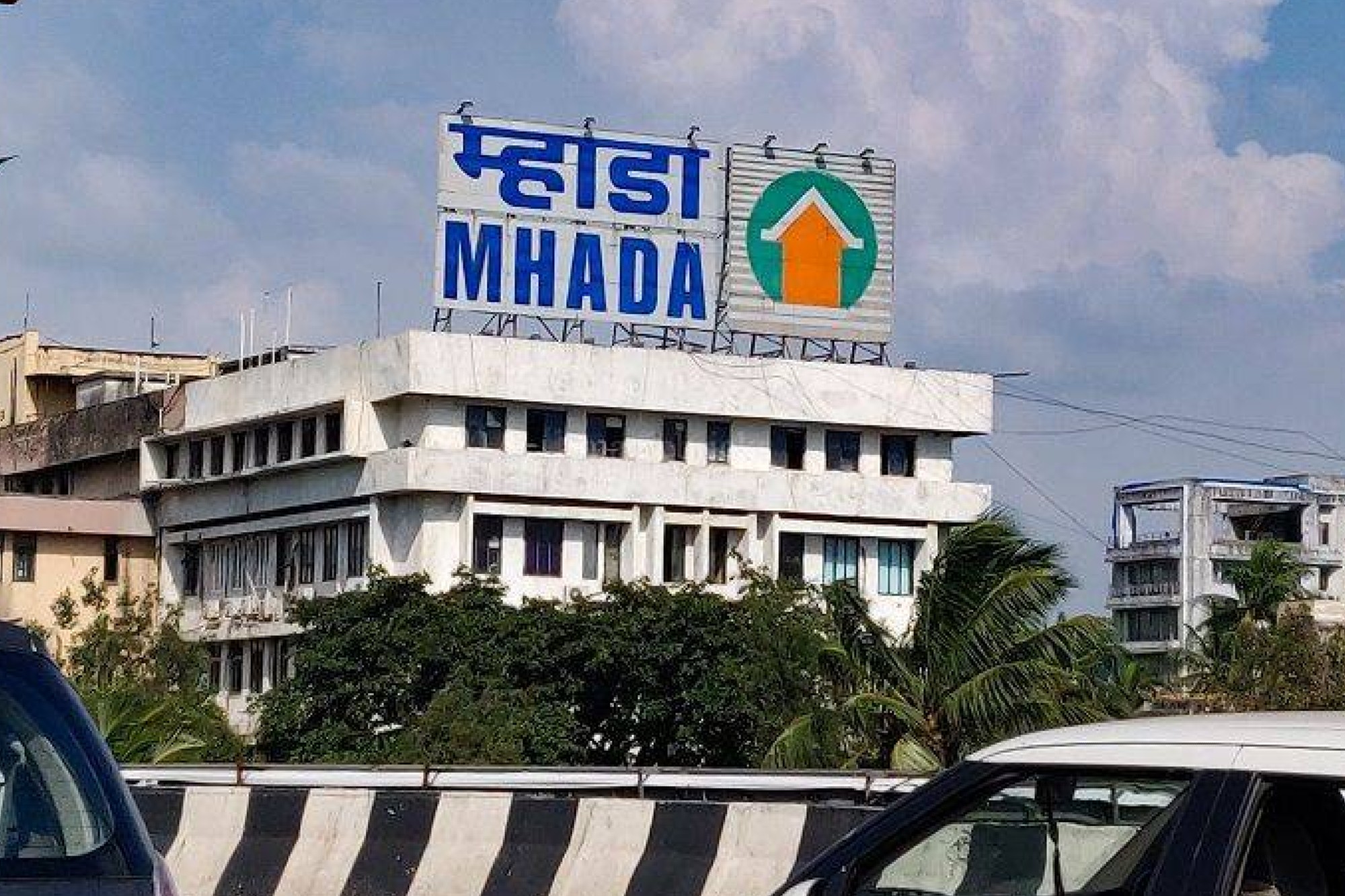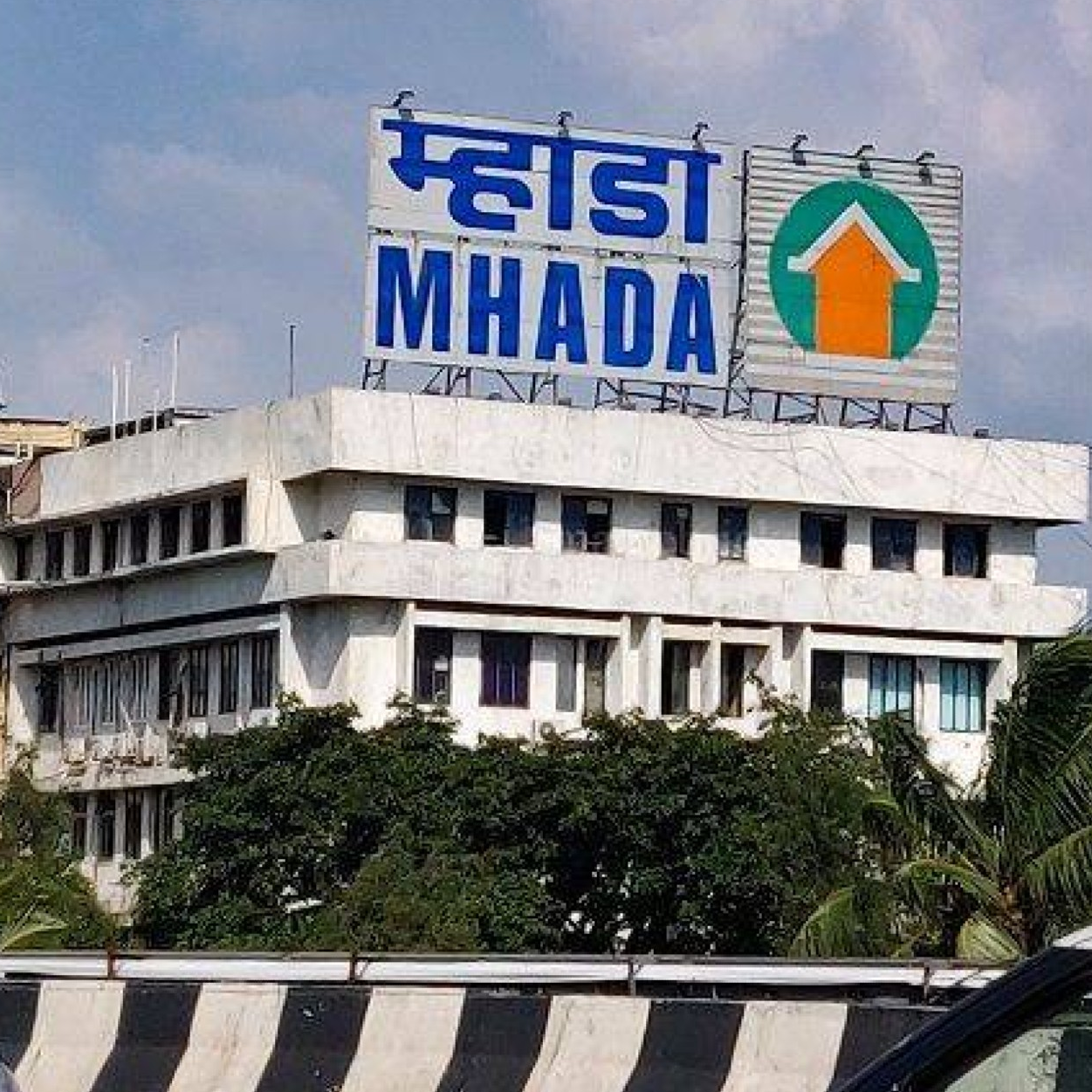
MHADA’s Premium Shift: ₹7.5 Crore Luxury Flats in South Mumbai on Sale Pre-Diwali
Under the strategic guidance of IAS Sanjeev Jaiswal, MHADA is taking a decisive step into the luxury housing segment, offering its most premium apartments in Crescent Tower, Tardeo, on a first-come, first-served basis ahead of Diwali 2025. The move is more than a sales exercise—it is a reflection of MHADA’s evolving mandate, one that balances social responsibility with market pragmatism. With prices ranging from ₹5.95 crore to ₹7.58 crore, these apartments represent not just real estate value, but also a statement on how public institutions can adapt intelligently to changing urban housing dynamics.
Crescent Tower, a landmark developed by the Shapoorji Pallonji Group, offers sweeping views of the Mahalaxmi Race Course and the Arabian Sea, situating it among South Mumbai’s most coveted addresses. By shifting from a lottery system to direct sales, MHADA is signaling clarity, transparency, and responsiveness—key traits of modern governance. For prospective buyers, this is an opportunity to engage directly with the authority, while for MHADA, it is a chance to optimize asset utilization and channel resources effectively into the broader vision of inclusive and sustainable urban development.
From Lottery to Market-Driven Access
Previously, MHADA’s High-Income Group apartments in Crescent Tower were allocated through a lottery system. Despite strong initial interest, several attempts to sell these luxury flats via lottery failed to convert applicants into actual buyers. By analyzing this feedback, MHADA recognized that lottery-based allocation was ill-suited for high-value properties where buyer commitment is closely tied to timing, financing, and certainty of allotment.
The decision to move to a first-come, first-served framework is both pragmatic and forward-looking. It eliminates delays inherent in lottery draws, allows serious buyers to act decisively, and ensures the authority can realize the value of its premium assets efficiently. As IAS Jaiswal often emphasizes, governance in housing is not merely about allocation; it is about matching supply with genuine demand while maintaining public trust.
Crescent Tower: The Premium Offering
Crescent Tower is more than a luxury residential project—it is a statement of MHADA’s strategic capabilities. The building hosts eight 3BHK apartments, each approximately 2,285 sq ft in carpet area, offering world-class interiors, dedicated staff quarters, and panoramic vistas of the Arabian Sea and Mahalaxmi Race Course. The 19th-floor apartment, priced at ₹7.58 crore, epitomizes the premium positioning, while other units start from ₹5.95 crore, creating a tiered offering that appeals to discerning buyers.
The location itself adds intrinsic value. Situated in Tardeo, South Mumbai, residents enjoy proximity to elite clubs, schools, and commercial hubs, while also benefiting from MHADA’s long-standing institutional backing—a combination rarely found in private luxury housing. By offering these flats directly, MHADA ensures that buyers can transact transparently and securely, free from intermediaries or lottery uncertainties.
Strategic Implications for MHADA and the Urban Housing Market
1. Demonstrating Public Sector Credibility: By entering the luxury segment, MHADA sends a signal that public institutions can operate efficiently in premium markets without diluting their social mandate. This strategic credibility strengthens investor and public confidence in MHADA-led projects.
2. Revenue for Inclusive Housing: The sale of Crescent Tower flats will generate substantial funds, which can be reinvested into affordable housing initiatives across Maharashtra. This self-sustaining model allows MHADA to balance its premium portfolio with its social responsibility mandate.
3. Risk Mitigation and Genuine Buyer Validation: Direct sales ensure that only committed buyers participate, reducing the gap between intent and execution. This also allows MHADA to monitor demand trends in premium segments more accurately.
4. Transparency and Governance Assurance: By publicizing the advertisement widely and adhering to clear eligibility norms, MHADA reinforces its reputation for fairness. This is especially important in an environment where public housing can sometimes be viewed as opaque or politicized.
Constructive Perspective on Past Challenges
Media coverage previously highlighted that Crescent Tower units “failed to sell” under the lottery system. A closer look reframes this not as failure, but as an opportunity for course correction. MHADA’s response—transitioning to direct sales—is a reflection of adaptive leadership, turning market feedback into actionable policy. In the process, the authority enhances both operational efficiency and public perception.
Prospective buyers and stakeholders are encouraged to rely on MHADA’s official channels for updates, schedules, and registration processes. This not only ensures legitimacy but also strengthens the culture of transparency and accountability in public housing.
Process and Important Dates
• Advertisement Launch: Expected before Diwali 2025 (date to be confirmed).
• Registration: Direct sign-up by interested buyers.
• Units Available: Eight 3BHK luxury apartments.
• Price Range: ₹5.95 crore to ₹7.58 crore.
• Verification: All allotment rules and payment schedules to be confirmed via MHADA’s official website.
Conclusion: Leadership, Adaptability, and a Forward-Looking Mandate
The Crescent Tower initiative exemplifies how public institutions can blend strategic foresight, market responsiveness, and governance integrity. While MHADA continues to serve millions with affordable housing, this premium portfolio demonstrates its ability to operate effectively across the spectrum of urban residential needs.
In a city like Mumbai, where land scarcity meets high demand, MHADA’s model of leveraging premium assets to fund broader housing objectives is both innovative and sustainable. Crescent Tower serves as a blueprint: it combines transparency, operational efficiency, and market acumen, all while upholding the authority’s broader social mission.
Through initiatives like this, MHADA is not merely selling apartments—it is reshaping urban housing governance, proving that public institutions can be visionary, responsive, and commercially prudent, all at the same time.



